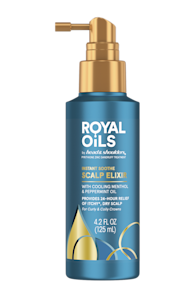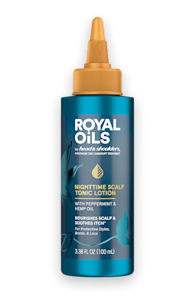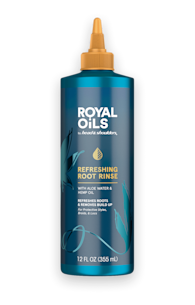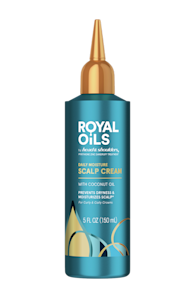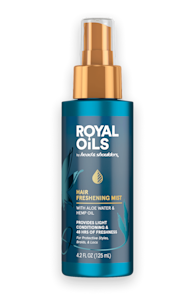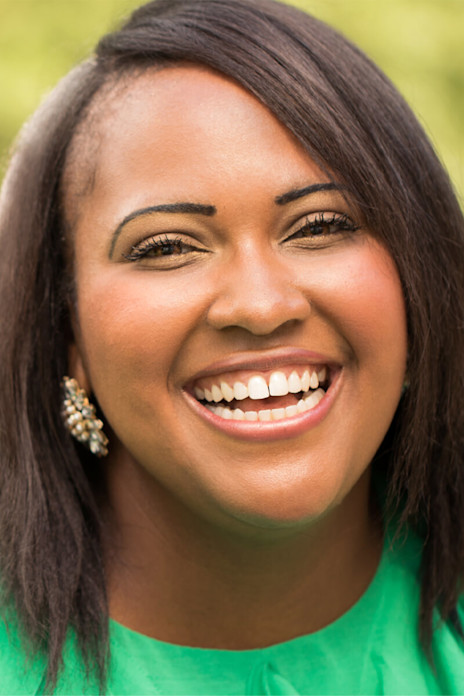THE TOP 4 COMMON SCALP ISSUES FOR BLACK HAIR

It’s a fact of life: curly hair tends to be drier than straight hair. That’s because the natural oils produced at the follicle have a harder time travelling down the strand and reaching the hair shaft, let alone the ends. So, naturally, you’d think curly- and coily-haired people would have greasier scalps—but that’s not necessarily the case.
Depending on your ethnicity, your curly or coily hair can have varying densities, porosities, and specific issues associated with hair care. African American hair, for instance, tends to be more prone to dandruff build-up on the scalp. But, why is that?
Learn more about common scalp issues for Black hair, that men and women, natural hair or relaxed hair face. We’re also sharing our favorite products to combat these scalp issues, including dandruff shampoo for Black hair.
Dandruff
Dandruff is a common scalp issue for people around the world. So, what causes dry hair and dandruff flakes? There are many culprits, including:
Using the wrong shampoo and conditioner
Washing your hair too often, which dries it out and strips it of its natural oils
Shampooing too infrequently, which can lead to a build up of oils and dead skin cells
There are tons of products in the market designed to get rid of dandruff in Black hair, so finding the right products for your hair type and that won’t completely strip your hair – whether natural, protective styled, relaxed, etc. – is important, and a good regular hair care routine can make the difference, too.
Itchy Scalp
Itchy scalp, or scalp pruritus if you want to get really technical with it, is more than just uncomfortable. An itchy scalp develops when you have a dry scalp or dandruff flakes, but it can also be present without either of those things. Clear as mud?
For our naturalistas and product junkies out there—product build up can also cause an itchy scalp. So, taking care of your hair in a way that prevents both flakes and product build up from occurring can lead to relief from this issue.
Hair Loss
Have you noticed excessive shedding or had more hair come out when detangling recently? There are several causes of hair loss, such as excessive styling or a medical condition. Some causes of hair loss can be treated and allow the hair to regrow, while others can result in permanent hair loss. It’s important to speak to your physician if you suspect a medical condition could be the cause of your hair loss.
Central Centrifugal Cicatricial Alopecia
One common type of permanent hair loss – particularly in Black women – is central centrifugal cicatricial alopecia (CCCA). Symptoms of CCCA include scarring on the front and crown of the scalp, as well as inflammation. Many experts believe long-term use of certain hair treatments, such as chemical relaxers and hot oils, may cause this type of hair loss.
If you use these types of products, it’s important to take breaks from these products (try chemical- and heat-free styling) and work with an experienced stylist to avoid more hair loss.
Traction Alopecia
Traction alopecia is a form of hair loss caused by repeated pulling and tension on the hair follicle. Protective styles, like braids, weaves and ponytails, can be beautiful low-maintenance hairstyles, but the friction, weight and pressure of the style can cause hair loss (see: Naomi Campbell). It’s best to stop doing your hair in styles that repeatedly pull at the follicles – especially overnight – to allow the hair grow back. If you notice pain with hair loss along your hairline, it may be time to reevaluate your hairstyle and find a way to promote hair growth.
Seborrheic Dermatitis
Similar to dandruff, seborrheic dermatitis appears as a flaky scalp, but can also include inflammation, soreness, and itchiness. This condition can be made worse or flare up in cold weather or dry environments—or if you have a weakened immune system and take certain medications.
Ways to treat this condition vary, but may include shampoos, creams, lotions and medications.
Products That Help with Scalp Issues
Along with consulting your stylist and a doctor, such as a dermatologist, there are many options for treating scalp issues at home. The Royal Oils Collection from Head and Shoulders has several products to meet your scalp health needs.
If an itchy scalp is causing you problems, Royal Oils Instant Soothe Scalp Elixir has what you need to relieve the itch. Great for protective styles, the scalp elixir provides 24-hour protection and doesn’t need to be rinsed out, making it great for the on-the-go person who needs relief fast. Plus, the easy-applicator tip makes reaching your scalp actually achievable.
For scalp care overnight, try Royal Oils Nighttime Scalp Tonic Lotion. With no sulfates and a formula containing aloe water and hemp oil, you can be sure your scalp and hair will feel and look healthier in just 3 weeks¹.
Build up, build up, build up. On your next wash day, use Royal Oils Refreshing Root Rinse to relieve scalp irritation and improve moisture.
Abating or preventing dryness and itch is equally important, especially if you’ve experienced it in the past. Royal Oils Daily Moisture Scalp Cream is free of mineral oils, which are known to cause build up, so you can depend on this scalp cream to provide protection from scalp issues when you need it most.
Curly and coily hair needs to be hydrated and moisturized twice as often as straight hair. Royal Oils Hair Freshening Mist provides up to 48 hours of freshness and locks in moisture for a hold that lasts and an itch-free scalp.
Do you face any of these common scalp issues? Understanding your hair and its needs is the first step toward figuring out how to treat and prevent those issues from reoccurring.
¹with regular use

